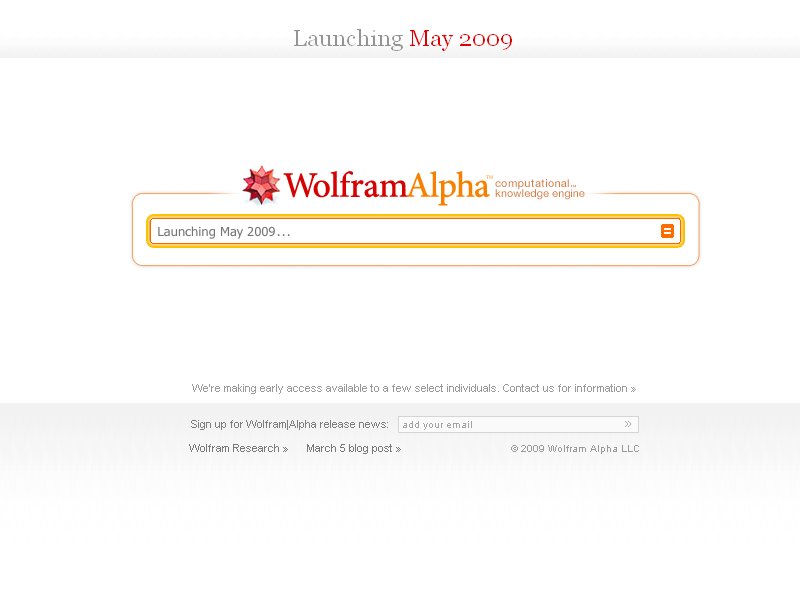'Exciting times' for Wolfram Alpha
The progression of computational search

Wolfram Alpha may have faded from the headlines, but founder Stephen Wolfram insists that the computational search engine has come on leaps and bounds since it hit the public domain.
The logic-driven search engine arrived back in May to much hype about its potential to topple Google – something it was never truly designed to do.
However, Wolfram Alpha has changed greatly in the last few months, according to Wolfram, who has written a lengthy blog post about the trials and tribulation of giving people correct information.
"…for us now the most valuable thing is seeing what doesn't work yet," wrote Wolfram. "Because that shows us what we need to add to Wolfram Alpha.
"There are several components. One is knowledge domains. Things people want that Wolfram Alpha doesn't yet know. The good news is that there's been very little that's come through that wasn't already somewhere on our to-do lists. They're long lists. But we can now be confident that they're good lists.
"A second big component is linguistics. Close to half the time that Wolfram Alpha doesn't give a result, it's not because it doesn't have the necessary knowledge, or can't do the necessary computation. It's because it doesn't understand what's being asked."
Semantics
Get daily insight, inspiration and deals in your inbox
Sign up for breaking news, reviews, opinion, top tech deals, and more.
Semantics in search has always been a major frontier subject, and Wolfram acknowledges that translating what people really want from what they actually type is a tricky task.
"It's very interesting to see the kinds of queries that come into Wolfram Alpha, and how they're phrased," added Wolfram
"We're really seeing a new human language. Based on ordinary language, but without a lot of its niceties. Probably closer to the way people think internally.
"Wolfram Alpha is a bit like a child: it's being exposed to a new language, and it's got to learn from examples how to understand it.
"The good news, though, is that Wolfram Alpha is getting a lot of examples. Already a couple of orders of magnitude more than a child ever gets."
Volume growth
So how much has actually been added to the Wolfram Alpha code base? Wolfram admits he has been staggered by the sheer volume of material.
"I just looked up what's actually happened to the Wolfram Alpha codebase since launch. And I have to say that I'm quite astonished: it's grown by a staggering 52 per cent - adding well over 2 million lines of Mathematica code," he says.
"There have also been nearly 50,000 manual groups of changes to our data repositories over the past 3 months.
"It's hard to have a good metric for how many completely new knowledge domains we've added. But based on new source files, and new underlying databases, I think it's been between 10% and 15%."
Exciting times
Wolfram believes that the Autumn season – with students back at schools – will be the key time for Wolfram Alpha – adding: "These are exciting times.
"The vision of Wolfram Alpha is really working! With every day bringing new advances. Progressively building up the largest coherent repository of human knowledge ever assembled."
You can check out the changes for yourself by going to http://www.wolframalpha.com/
Patrick Goss is the ex-Editor in Chief of TechRadar. Patrick was a passionate and experienced journalist, and he has been lucky enough to work on some of the finest online properties on the planet, building audiences everywhere and establishing himself at the forefront of digital content. After a long stint as the boss at TechRadar, Patrick has now moved on to a role with Apple, where he is the Managing Editor for the App Store in the UK.
